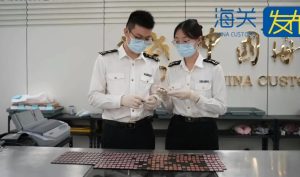Faculty Fandom: W. David Tarver

For W. David Tarver, teaching is all about making an impact on students. “I love exploring entrepreneurship with students, and I love watching them realize what it takes to develop a successful venture as we progress through the course,” he says.
Today, W. David Tarver motivates students in ENTR 490.012, the Urban Entrepreneurship Practicum, where students delve into the strategies of urban-focused ventures that actively enhance our cities. This course illuminates Detroit’s thriving entrepreneurial landscape, allowing students to engage firsthand through a semester trek to the city. While Tarver is now a beloved faculty member at the CFE, to truly understand his journey, we have to start at the beginning.
Tarver’s passion for entrepreneurship ignited at a young age. Imagine a young Tarver growing up in Flint, Michigan, surrounded by the hum of electronics and the buzz of automotive prosperity. His dad, a WWII vet with a knack for radio and TV tech, set up shop in their basement, sparking Tarver’s fascination with all things electronic. Add to that the sight of Flint’s booming auto industry, and you’ve got the perfect recipe for a budding entrepreneur.
Fast forward to Tarver’s college days at U-M’s College of Engineering, where he soaked up knowledge like a sponge. After a stint at Bell Laboratories, Tarver and two of his colleagues, Steven Moore and Charles Simmons, decided it was time to take the plunge into entrepreneurship. And so, Telecom Analysis Systems was born, straight out of Tarver’s basement. “We wanted to prove that we could create our own world-class telecommunications company,” Tarver recalls, and boy, did they deliver.

It wasn’t all smooth sailing, though. Tarver and his crew faced their fair share of challenges along the way. “We started the company in the immediate aftermath of the civil-rights movement, and had seen no examples of black-owned tech startups that we could follow,” Tarver said. Fueled by sheer determination and a dash of moxie, they paved their own way, turning Telecom Analysis Systems into a global player before you could say “startup success story.”
Tarver and his partners sold Telecom Analysis Systems to a British company In 1995. He spent some time building and managing its telecommunications group until he left in 1999. Since then, he’s been engaged in different community service projects, and in 2012 he published the book Proving Ground: A Memoir, which details his entrepreneurial journey.
Now, how did Tarver find his way to the CFE? Let’s just say it was destiny. With a deep-rooted connection to the College of Engineering and a burning desire to share his entrepreneurial know-how, Tarver waltzed right into our hearts (and classrooms).

And boy, does he light up the room! Tarver’s energy is infectious, igniting a spark in students that’s downright contagious. “The students bring unique perspectives and energy, and I find better approaches for teaching entrepreneurship every semester as a result of the interaction with them,” he says. He also finds joy in keeping up with students and celebrating their career wins. From brainstorming sessions to late-night chats about startup dreams, Tarver’s passion for teaching and entrepreneurship knows no bounds.
But it’s not all work and no play for Tarver. When he’s not busy shaping the minds of tomorrow’s entrepreneurs, you’ll find him hitting the streets on his trusty bike. “I have a folding bike called a Brompton that I have taken on trips around the U.S. and Canada, and to Europe and Asia,” he says. When he’s not exploring new trails, he’s belting out tunes at local jazz joints, his soulful voice filling the room with rhythm and blues.

So, what’s Tarver’s advice for budding entrepreneurs? “I would advise the students to approach the subject of entrepreneurship with an open mind,” he says. “Be prepared to work with other students on a team, and to talk with and listen to real people in the marketplace – especially potential customers. The skills acquired in entrepreneurship education are different from those learned in other course work, but the skills are useful and transferable to most other fields.”
With W. David Tarver leading the charge, the future of entrepreneurship is looking brighter than ever. So, strap on your seatbelt and get ready for the ride of a lifetime. The entrepreneurial adventure awaits!




